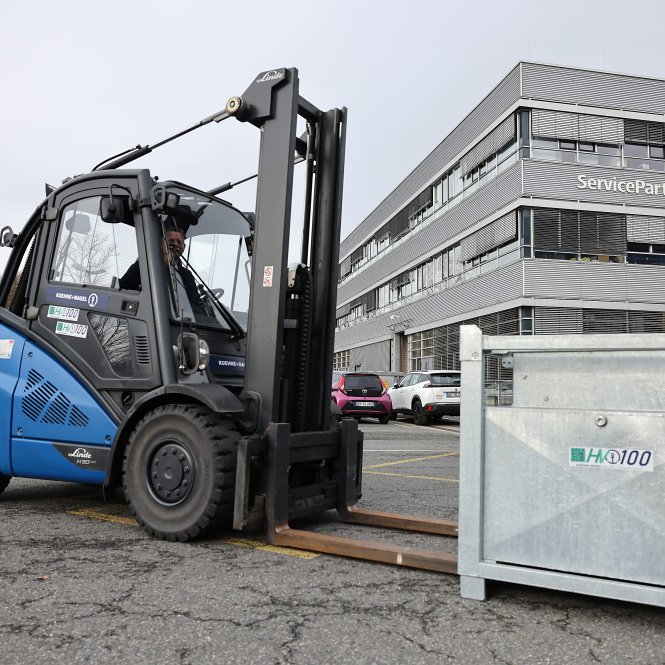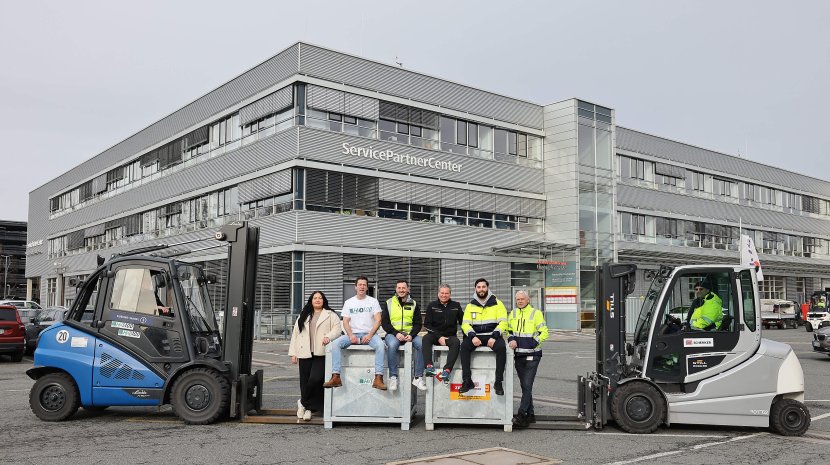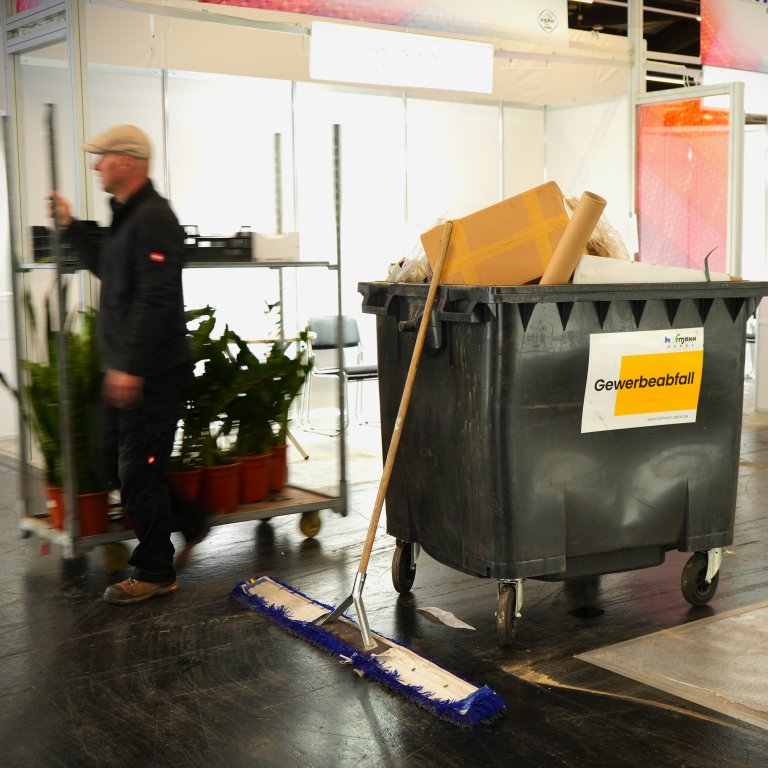

With a fuel made from renewable raw materials, the forklift trucks in the exhibition centre could soon be operated more sustainably. NürnbergMesse is starting a test run together with its service partners DB Schenker and Kühne+Nagel.
Up to 100 forklift trucks whizz through the halls of the exhibition centre during trade fair set-up and dismantling. The freight forwarders Kühne+Nagel and DB Schenker use them to move exhibition stand components, empties and exhibition materials from the lorries to the exhibitors' respective locations. Until now, the forklift trucks have been fuelled by diesel. A sustainable alternative is the biofuel HVO 100, which the two service partners and NürnbergMesse now want to test in a six-month trial run.
Compared to diesel, the use of HVO 100 biofuel promises CO2 savings of up to 90 %. HVO 100 stands for ‘Hydrotreated Vegetable Oil’. The fuel is produced from vegetable oils and fats that can be used as fuel through hydrogenation. This means that the fuel consists entirely of renewable raw materials and is considered a clean and sustainable alternative to fossil fuels.
At the same time, HVO 100 fulfils stricter environmental requirements and leads to lower pollutant emissions: less soot, nitrogen oxides and particulate matter thanks to cleaner combustion. ‘The elimination of fossil diesel fuel also has a positive effect on the air quality in the exhibition halls - a real added value for everyone who moves around our halls,’ says Johanna Winsczyk, Manager Service Development.

Together with its service partners Kühne+Nagel and DB Schenker, NürnbergMesse is starting to test biofuels for forklift trucks.
Neither vehicles nor infrastructure at the exhibition centre need to be adapted for the use of biofuel. During the test phase, the vehicles refuel with biofuel at mobile refuelling stations that can be flexibly positioned on the exhibition grounds. Similarly, no modifications need to be made to the vehicles from the manufacturer Linde in order to refuel with the fuel. ‘Switching to biofuel is quick and easy and promises considerable CO2 savings potential,’ says Johanna Winsczyk.
While NürnbergMesse is considering switching to electric forklift trucks as a long-term sustainability solution that would entail adjustments to the logistics infrastructure, the biofuel promises quick success. Following a successful test phase, more vehicles could be refuelling with the biofuel as early as the summer and contribute to reducing CO2 emissions.
The test operation of biofuels for the forklift truck fleet is one of numerous measures to make exhibition operations at NürnbergMesse more sustainable. It launched its energy campaign ten years ago to reduce its energy consumption. Measures to reduce waste and water consumption as well as the switch to 100% green electricity were added. Since 2023, the company's own photovoltaic system with battery storage has been producing sustainable electricity to bring NürnbergMesse closer to its goal of a CO2-neutral energy supply by 2028.




